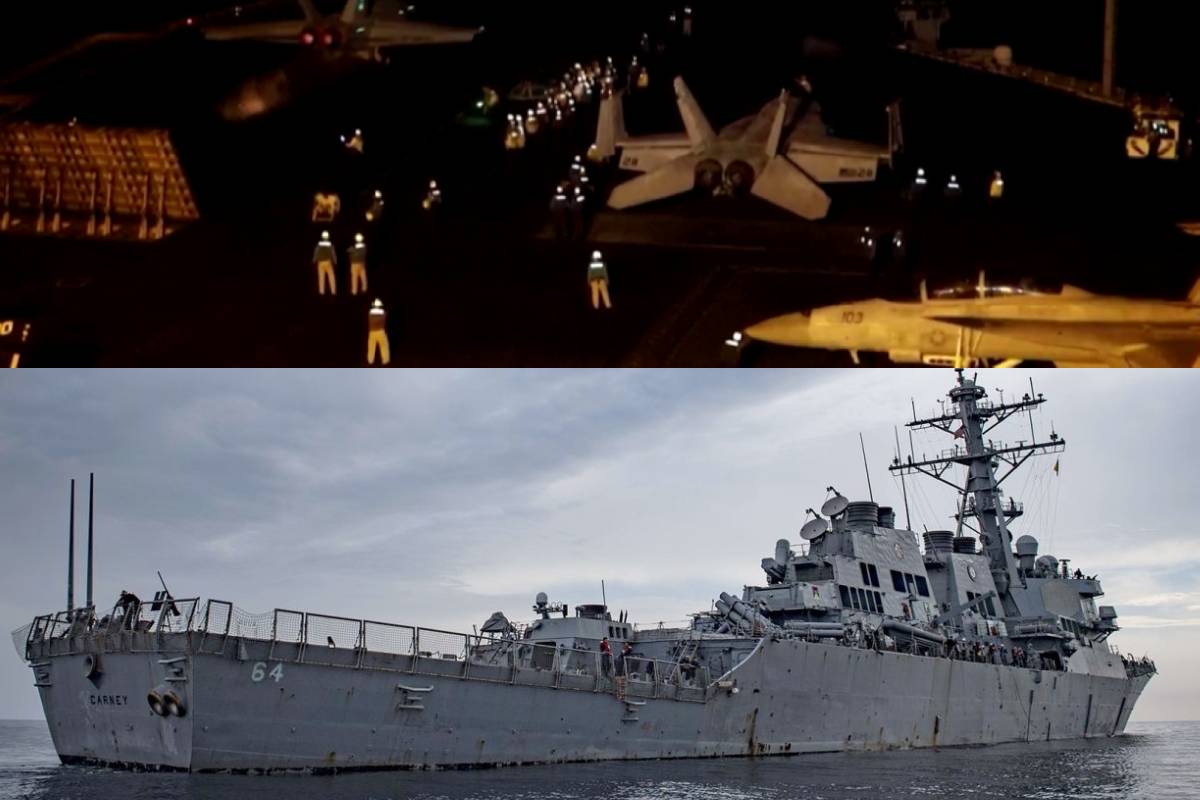NEW DELHI: In a continuation of military action against Houthi rebels in Yemen, the US military launched a follow-up strike on a Houthi-controlled site in the Red Sea.
The strike, carried out by the Navy destroyer USS Carney, targeted a radar site deemed a threat to commercial vessels. This comes a day after the US and Britain conducted multiple airstrikes on Houthi rebels.
The initial airstrikes on January 12, hit 28 locations, striking over 60 targets, responding to Houthi drone and missile attacks on commercial ships in the Red Sea. President Joe Biden, during a press conference, warned that further strikes could be carried out if Houthi provocations continued.
ALSO READ: U.S. & UK launch strikes on Houthi targets in Yemen
The US Navy issued a warning to American-flagged vessels to avoid specified areas around Yemen in the Red Sea and the Gulf of Aden for the next 72 hours. The Houthis, in response, vowed fierce retaliation, escalating the potential for a broader conflict in an already volatile region.
FLASH: In response to Houthi attacks on international shipping, the United States and Britain conduct strikes against Houthi-linked sites—the first such action. Witnesses report explosions across Yemen.
President Biden issues a stern warning, stating, “These targeted strikes… pic.twitter.com/iznPZygW5P
— The New Indian (@TheNewIndian_in) January 12, 2024
President Biden, addressing the situation, labelled the Houthis as a terrorist group, stating, “I think they are.” The administration had been considering redesignating the Houthis as a terrorist organisation, but the President deemed this ‘irrelevant’.”
Criticism arose from lawmakers, both Democrats and Republicans, questioning the lack of congressional authorisation for the strikes. President Biden dismissed these concerns, asserting that the actions were necessary and appropriate.
The Pentagon revealed that Defence Secretary Lloyd Austin ordered the military action from the hospital, where he is recovering from complications following prostate cancer surgery.
ALSO READ: Dangers of downplaying Houthi menace in Red Sea
The strikes focused on low-populated areas, with Lt. Gen. Douglas Sims noting that the number of casualties would not be high. Targets included weapons, radar, and remote mountain areas.
Amid the escalating conflict, Saudi Arabia sought to distance itself from the attacks, emphasising a delicate détente with Iran and an existing ceasefire in Yemen, where a Saudi-led, US-backed war has resulted in a humanitarian crisis.
FLASH: Following a US & UK attack on the #Houthis in #Yemen, Russian President Putin Warns the West against “Foolishness in Yemen”. pic.twitter.com/NM0DiVeKvB
— The New Indian (@TheNewIndian_in) January 12, 2024
The extent of damage from the strikes is still unclear, as the US military assesses the impact on Houthi capabilities. The Red Sea, a crucial waterway, has witnessed severe disruptions to global trade due to previous attacks, impacting oil prices and causing production halts, exemplified by Tesla temporarily stopping production at its German factory.
ALSO READ: Indian crew safe after Houthi drone attacks on Red Sea tanker
As tensions rise, the international community is closely monitoring the situation. The United Nations Security Council held an emergency meeting, where the US and its allies defended the strikes as self-defence measures. Russia, however, accused them of “blatant armed aggression,” warning of a potential catastrophe in the Middle East if the escalation persists.
The Houthi-controlled territory, home to two-thirds of Yemen’s population, remains a focal point of conflict.










